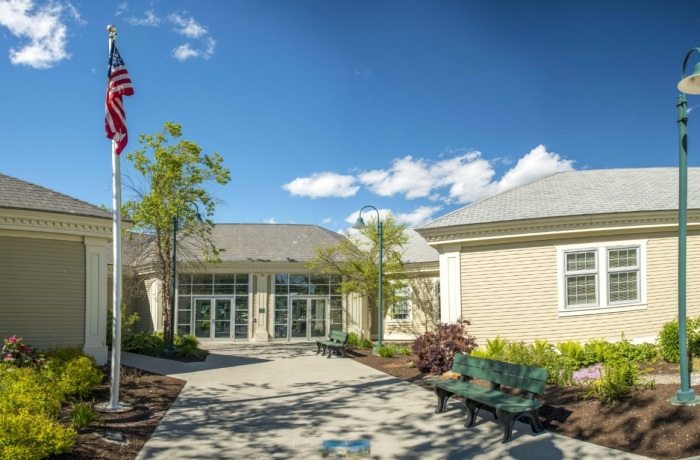
A church is continuing its legal battle against the University of Maine System for allegedly refusing to sell a property because of the congregation’s religious objections to same-sex marriage after a legal setback earlier this year.
Calvary Chapel Belfast filed an appeal last week with the 1st U.S. Circuit Court of Appeals after a lower court rejected its request for a preliminary injunction.
After UMS initially awarded Calvary Chapel the right to negotiate the purchase of the Hutchinson Center in Belfast last August, it rescinded the offer allegedly after objections were raised about the church’s traditional views on sexuality.
“Calvary Chapel Belfast was the winning bidder to purchase a University of Maine System-owned property, yet the System revoked the Church’s award after receiving unprecedented backlash from the disappointed bidders, donors, employees, alumni, politicians, and vocal community members — all of which was driven by animus towards the Church and its religious views,” states the appeal.
“In denying the Church equitable relief, the district court downplayed the circumstantial evidence of the extraordinary public pressure on the System and instead found ‘no impermissible religious animus from within the System’ or ‘procedural irregularity’ with its decision.”
“Calvary Chapel Belfast rightfully won the University of Maine System’s first bidding process,” said Liberty Counsel Founder and Chairman Mat Staver, whose organization is representing the church, in a statement.
“The church participated in the bidding process in good faith, but UMS then unlawfully rescinded their winning bid due to its religious beliefs under the excuse of procedural deficiencies. Such discrimination is unlawful, and an injunction is necessary to restore the church’s bid award and stop these unconstitutional actions.”
Last November, the University of Maine announced that the Hutchinson property had been awarded to Waldo Community Action Partners, which offered $3.06 million for the property, exceeding the estimated value of $2.52 million.
“WCAP demonstrated proof of funds and their top-scoring proposal did not have any contingencies that could delay a timely transition of the property, which the university anticipates could be completed by early 2025,” stated the university last year.
“As is standard with System solicitations, the university has the right to terminate negotiations at any point if they are not proceeding in a manner that is in its best interest as a public institution.”
Later that month, Calvary Chapel filed suit against the university system, arguing that WCAP is a “secular bidder that had maliciously criticized the Church’s religious identity and beliefs and on whose Board sits a State Senator who openly stoked flames of religious hostility towards the Church in the community.”
“UMS’s actions, culminating in the award of RFP 2025-031 to WCAP, represent a continuation of its pattern of discriminatory treatment toward the Church and a conspiracy against its constitutional rights,” reads the complaint.
The university system emailed a statement to The Christian Post last November denying wrongdoing and acknowledging a formal protest from Calvary Chapel.
“As we have previously stated, every organization had the same opportunity to submit a proposal to purchase the Hutchinson Center, and every proposal received was scored by the same objective standards,” stated the UMS.
In May, U.S. District Judge Stacey D. Neumann, a Biden appointee, rejected Calvary Chapel’s motion for a preliminary injunction, concluding that the church had “produced no evidence of impermissible religious animus from within the System.
Neumann also wrote that “the alleged substantive and procedural departures are not probative of any intent by the System to discriminate on the basis of religion or adopt the community’s religious animus.”
“The record demonstrates [System Vice Chancellor of Finance Ryan Low] made the decision to rescind the award and issue a new RFP based on one of the same factors the second-appeal-level administrator would usually consider — cost savings,” wrote Neumann.
“The Church did not produce evidence indicating such a decision-maker would not have considered that important factor.”

















